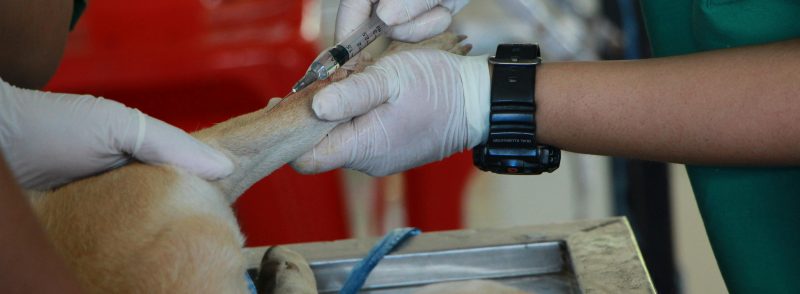Necessary Vaccinations for Your Dogs
Necessary Vaccinations for Your Dogs: Depending on where you are located, certain infections may be more or less normal. Our veterinarian will assess the risks and benefits based on specific lifestyle requirements for your dogs and advise you appropriately. Vaccination plans vary depending on your local area as well as the product and form of vaccination that your vet brings.
Why do dogs need multiple vaccinations?
Newborn animals have not yet had the chance to develop their immunity so they need protection against infection. They’re receiving immunity from their mother’s immunity which is only temporary. It’s steadily declining over the first few weeks of life, and it’s pretty much gone by twelve weeks. The rate of decline varies depending on many factors This is why the dog must undergo 3 vaccinations from six to sixteen weeks of age.
Necessary Vaccinations for Your Dogs: Core Vaccines
Dogs and puppies need core vaccines because everyone is at risk of contracting a dangerous disease. Here are the main vaccines:
Canine Distemper Virus (CDV)
The canine respiratory, gastrointestinal, and central nervous systems are all vulnerable to this very infectious virus.
Canine Adenovirus-2 (CAV-2)
In addition to warding against respiratory illnesses, this vaccination protects dogs from infectious hepatitis.
Canine Parvovirus (CPV)
Puppies and unvaccinated dogs are particularly vulnerable to this highly infectious virus. This may cause serious gastrointestinal problems.
Rabies Virus
Many jurisdictions have made this vaccination mandatory as a means of protecting citizens against a potentially fatal virus that attacks the central nervous system.
The DAP and DHPP vaccinations often mix these basic vaccines with others to protect against influenza and hepatitis.
Non-Core Vaccines
Consider your dog’s lifestyle, where he lives, and the potential dangers of the environment before deciding whether to vaccinate him with a non-core vaccination.
Advice from a veterinarian
Your dog’s age, health, lifestyle, and local rabies vaccine restrictions will all play a role in determining the best vaccination plan for your dog. Therefore, it’s important to speak with your vet to get the best advice.
When can I take my puppy out after he’s had a vaccine?
It cannot be guaranteed that your puppy will develop complete immunity from diseases that are vaccinated for up to 10-14 days after our recommended third vaccine. Nevertheless, the socialization of your puppy at this age is especially important. This is the same time when they are at the highest risk of infection with the disease, especially parvovirus.
You should avoid public areas such as parks and beaches until your dog finishes the vaccination program. Your puppy should only socialize around animals that are verified to be fully vaccinated or free from parvovirus, in a setting you understand.
Do the vaccinations have 100% protection?
Vaccines have been extremely successful in safeguarding the majority of dogs from diseases such as distemper that were once common but now rare, but there are situations in which immunity conferred by a vaccine can be overcome and a vaccinated dog can still develop a disease. In such instances, the infection was usually milder than it would have been if your pet had not been vaccinated.
Also visit –
🩺 Your Local Vet in Port Kennedy
🐨 Australia’s Ultimate Travel & Work Guide with BBMLIVE
🦘 Explore Western Australia with the Go West Handbook



